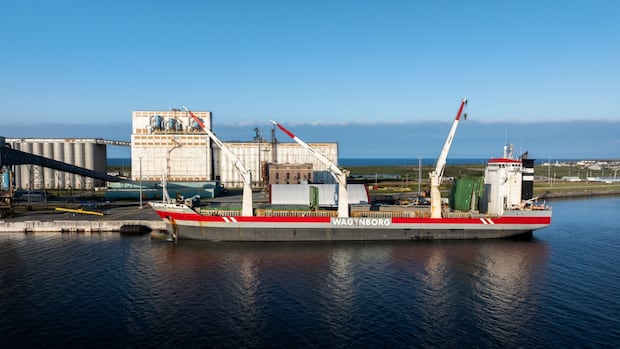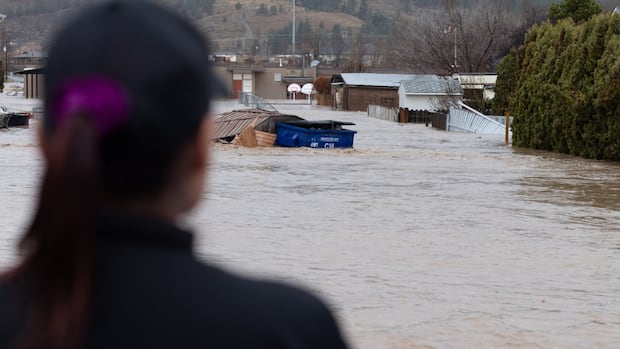The Port of Churchill’s ownership group has signed an agreement with the Manitoba and Saskatchewan governments to create a renewed Arctic trade corridor in northern Manitoba.
Manitoba Premier Wab Kinew and Saskatchewan Premier Scott Moe say they’ve signed an agreement with Arctic Gateway Group to upgrade infrastructure, modernize supply chains and increase access to global markets through the Port of Churchill, the Manitoba government said in a news release on Tuesday.
The port, which has a brief operating window each summer, is owned and operated by Arctic Gateway Group, a partnership of dozens of First Nations and Hudson Bay communities.
The premiers made the announcement Tuesday during the first ministers’ meeting in Ontario’s Muskoka region, where the premiers are discussing their own response to the Canada-U.S. trade war.
A five-year road map is outlined in the memorandum of understanding, which the province of Manitoba says formalizes a shared commitment to invest in the port and connected railway to lengthen the shipping season, support boosted freight capacity and activate trade networks.
Arctic Gateway will invest in the port and railway to lengthen the shipping season and support heightened freight capacity, while Saskatchewan will ready commodity producers and exporters, as Manitoba leads efforts to secure federal funding and regulatory support for the site, the release says.
Shortly after the Liberals won a minority government in last April’s federal election, Kinew sent a letter to Prime Minister Mark Carney to pitch five major resource projects in the province that could be fast-tracked.
At the top of Kinew’s list was a project he called the “One Canada Trade Corridor,” which would create a potential hub for critical minerals and fossil fuel exports through northern Manitoba’s Port of Churchill to diversify Canada’s trade relationships.
The Hudson Bay port, accessed via the Arctic Gateway railway system, promotes itself as the shortest link from the Prairies to the Atlantic Ocean, offering access to the Arctic, Europe, the Middle East, Africa and South America.
Talks of critical mineral exploration and potential oil shipments in northern Manitoba aren’t new, but Kinew has been increasingly vocal about a renewed case for the port as a way to ease trade tensions with the United States since U.S. President Donald Trump returned to office last January.
In recent years, the federal and provincial governments have invested millions of dollars in the railway line and port as a way to secure a trade route through Hudson Bay and the Arctic to overseas markets.
The port recently added a second weekly freight train on the Hudson Bay Railway and tripled its critical mineral storage capacity.






